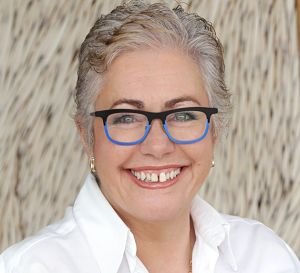Reinventing the Insurance Practice
In today's Australian Financial Review (AFR) I was asked my opinion about the future of Australia's insurance practices. The article came in the wake of many high profile members of Sparke Helmore's insurance team defecting to Hall & Wilcox.
I thought now might be a good time to elaborate on what I said in today's paper, and to share what US-based insurance lawyers said they were doing to survive in a rapidly changing market for their services.
A CHALLENGING ENVIRONMENT
Law firms continue to work on improving their processes and on quality control, while simultaneously responding to cost of service pressures from insurance organisations.
It's a challenging environment. And it's really only one that can accommodate firms prepared to dedicate, not dabble, in the sector.
As insurance defence work represents a significant component of the Australian legal market, I was pleased to see the specific challenges of marketing to this sector addressed in this year’s Legal Marketing Association Conference in San Diego.
TIME TO GET LEAN?
One speaker, Dr John Olmstead Jr, a law firm management consultant and editor-in-chief of The Lawyers Competitive Edge, suggested that insurance firms need to continue reinventing their practice to stay competitive. As a start he recommended:
Getting leverage back on track. By letting go of highly-paid senior associates and unproductive partners and hiring more paralegals. Ideally, he said ratios should be about 4:1.
Opening up channels of communication with insurance firms. Do this by using client focus groups, insurance company councils and other forums. Innovative firms will take active leadership roles in this endeavour.
Reining in expenses. This includes renting cheaper premises, hiring cheaper people, and looking at getting value from your marketing costs.
Investing in technology and re-engineering work processes.
BUILDING STRONGER RELATIONSHIPS
The LMA Conference also included a panel session discussing the latest business development ideas for insurance firms. The panel included an insurance lawyer, insurance company and an insurance law firm marketer.
Here's their tips on building stronger relationships and practices.
Capitalise on insurance expertise by expanding into adjunct or associated markets. For example, one firm was expanding its Professional Indemnity D&O expertise into a niche specialisation on data breach matters.
Use marketing to compile client research and relevant articles and circulate this weekly. Use your marketers to build relationships with industry conference organisers and include updates on these events in their report.
Profile the experience and expertise of each adjuster/claims manager and use this to inform and prepare lawyers.
Build networks with brokers.
Create moments for ‘face time’ with your contacts in insurance organisations, just to be seen and remembered.
Second partners and associates to firms overseas (ie London) to understand the global insurance market.
Try to understand the claims management philosophy of each insurance division and how they classify a ‘win’.
And their tips for winning insurance defense work …
Attend industry conferences and events. Have all lawyers report back to the rest of practice about what they learnt, observed or ideas to progress.
Provide ‘learning’ events – seminars, papers, or updates.
Use your firm’s PI broker to introduce you.
Provide regular eNewsletters with relevant content that actually relates to what your clients do and helps them do their job.
If you’d like to know more, get in touch for a personalised Zoom chat or call.
Sue-Ella is the Principal of Prodonovich Advisory, a business dedicated to helping professional services firms sharpen their business development practices, and attract and retain good clients.
©Prodonovich Advisory. Please respect our copyright and the effort taken to produce the original material in this article. This article, and any portion of it, may not be reproduced or used in any manner whatsoever without the express written permission of the author.


